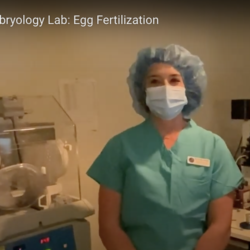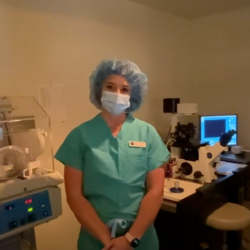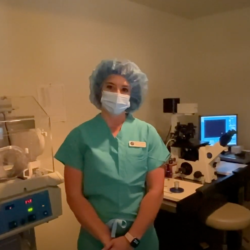
At The Fertility Institute, over 70 percent of our in vitro fertilization (IVF) transfers result in live births. IVF is a four-step process that includes ovulation induction, egg retrieval, fertilization in a laboratory, and transfer of the embryo to the mother’s uterus. The ideal candidates for IVF are in good health, are within their ideal weight range, maintain a healthy diet, limit their alcohol intake, avoid tobacco products and work out regularly.
You can prepare for IVF by nourishing your body during the crucial early stages of fetal development and by having the tools to handle stress. Just as you prepare the soil before you plant seeds in a garden, you should prepare your body and uterus by doing everything possible to ensure that there is a healthy environment for growth. Here are 5 ways to increase your IVF success rate naturally:
- Make a 90 day preparation plan: Because the cycle of the egg (ovum) is 90 days, you should start monitoring what you eat and drink and your stress level at least 3 months prior to starting IVF. In your preparation plan, you should include taking vitamin C (to support your ovaries), vitamin B-Complex (to lower stress) and antioxidants (to help protect the egg and sperm from free radical damage). In addition, studies have shown that a CoQ10 supplement will improve your egg health and fertilization rate. Fertility superfoods, such as Maca, may also help to keep your hormones balanced. You should discuss your preparation plan with your doctor before you begin to take any antioxidants, herbs, supplements or fertility superfoods.
- Fertility Cleansing: Over the years the body can accumulate toxins from chemicals in the elements as well as in the substances we consume daily or apply to our skin. Many of these toxins get stored in the fat tissues of the body and should be cleansed prior to starting IVF. It is suggested that you do a fertility cleansing 25-30 days before becoming pregnant. Fertility cleansings will assist your liver in cleansing the body of environmental toxins and pollutants and in maintaining a proper hormone balance. The increased circulation from a fertility cleansing also helps the uterus in clean out old menstrual blood and tonify the uterine muscles.
- Maintain a Healthy Fertility Diet and Exercise: Nutrition is the foundation for a healthy fertility, a healthy pregnancy and a healthy child. A natural fertility diet supports your body in its reproductive efforts by providing it with antioxidants, vitamins and minerals. You should eat more good carbohydrates (fruits, vegetables, beans and whole grains), plant proteins (nuts, seeds and tofu) and full fat dairy products and avoid trans fats and sugary drinks. Exercise is also an integral part of any healthy lifestyle and will help keep your body mass index (BMI) under 30 for an optimal chance at fertility.
- Prepare for Pregnancy with a Prenatal Multivitamin: The first weeks of pregnancy are a critical time of development. When you take a daily prenatal multivitamin it is much easier to ensure that your body has all of the nutrients necessary for pregnancy. Even before pregnancy is detected, nutrients such as Omega 3 fatty acids and folic acid help assist in the healthy development of the fetus. In a study by the Harvard School of Public Health, women who took a daily multivitamin including 400 micrograms of folic acid were 40 percent less likely to experience ovulatory infertility.
- Create a stress support system with a mind/body program: Mind/Body therapies use the power of thoughts and emotions to influence physical health. A study in the Journal of Fertility and Sterility found a dramatic increase in IVF success rates for those who participated in a Mind Body program prior to and during their IVF procedure. Out of 151 women scheduled to undergo an IVF cycle, the chance of a live birth was 93 percent higher in women with the highest positive-affect score.



